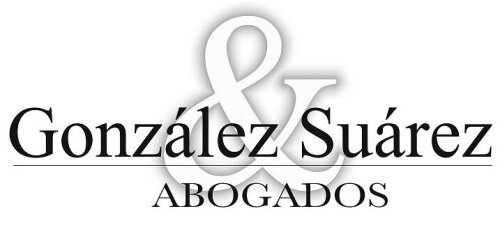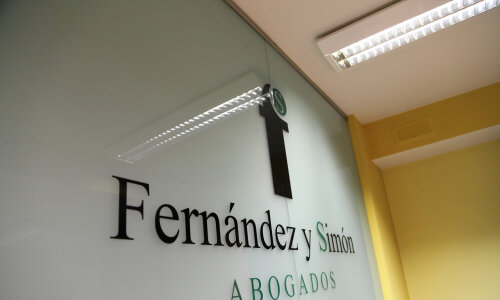Best Collaborative Law Lawyers in Palencia
Share your needs with us, get contacted by law firms.
Free. Takes 2 min.
Free Guide to Hiring a Family Lawyer
List of the best lawyers in Palencia, Spain
About Collaborative Law in Palencia, Spain
Collaborative Law is a modern approach to resolving legal disputes without going to court. In Palencia, Spain, it is increasingly used as an alternative to traditional litigation, especially in family law matters such as divorce, child custody, and property division. The process focuses on cooperation, transparency, and shared solutions, allowing clients and lawyers to work together to reach satisfactory agreements. All parties commit to resolving issues outside of the courts, reducing conflict and promoting long-term cooperation, particularly when ongoing relationships like co-parenting are involved.
Why You May Need a Lawyer
There are many situations where legal help in Collaborative Law is beneficial. Individuals often seek a collaborative lawyer when divorcing or separating to negotiate child custody arrangements, spousal support, or distribution of assets. Business partners may use collaborative processes to settle disputes amicably and maintain ongoing business relations. Collaborative Law can also be helpful in inheritance disputes, workplace conflicts, and contract disagreements. A skilled lawyer ensures your rights are protected, guides you through the legal framework, and helps steer the discussions towards practical, fair agreements.
Local Laws Overview
In Palencia, Collaborative Law is influenced by both Spanish national legislation and local judicial practices. Spanish law, particularly the Civil Code, supports mediation and negotiation outside of court, and recent reforms in Alternative Dispute Resolution (ADR) promote collaborative practices. Parties are required to act in good faith and maintain open communication during the process. All agreements reached through Collaboration must comply with Spanish legal standards before they can be formalised or enforced by a judge if necessary. Local bar associations in Palencia also support Collaborative Law training for lawyers to maintain professional standards and best practices in this field.
Frequently Asked Questions
What is Collaborative Law and how does it differ from mediation?
Collaborative Law is a process where both parties and their lawyers work together to resolve disputes without going to court. Unlike mediation, the lawyers actively participate and represent their clients throughout the negotiations, ensuring legal advice is available during all discussions.
In which cases can Collaborative Law be applied in Palencia?
It can be used in family law cases like divorce, child custody, and succession matters, as well as business, employment, and contract disputes. It is suitable for most civil legal issues where the parties wish to avoid litigation.
Is Collaborative Law legally recognised in Spain?
While there is not a separate Collaborative Law statute in Spain, its principles are recognised within the broader framework of ADR under Spanish law. Courts and legal professionals support agreements reached through this process, provided they adhere to legal standards.
What happens if the Collaborative Law process fails?
If an agreement cannot be reached, the parties may proceed to court. In most collaborative processes, the lawyers involved must withdraw from representing their clients in subsequent litigation, encouraging a genuine effort to reach a settlement collaboratively.
Are the agreements reached binding?
Yes, agreements reached through Collaborative Law become legally binding once they are signed and, if required, ratified by a court. They carry the same legal weight as settlements reached through traditional court processes.
How long does the Collaborative Law process usually take?
The duration varies depending on the complexity of the case and the willingness of the parties to cooperate. However, it is usually faster than court litigation because it avoids lengthy procedural delays.
What are the advantages of Collaborative Law over court litigation?
Collaborative Law is typically less adversarial, less stressful, preserves confidentiality, and is often more cost-effective. It allows parties to maintain control over the outcome and focus on mutually agreeable solutions.
Do both parties need to have a collaborative lawyer?
Yes, both parties must be represented by dedicated collaborative lawyers trained in this approach to ensure the integrity and balanced negotiation of the process.
Can children’s voices be heard in collaborative family law matters?
Yes, child specialists or other professionals may be involved to ensure that the best interests of children are considered and their views are appropriately represented in the discussions.
How can I find a collaborative lawyer in Palencia?
You can contact the local bar association (Colegio de Abogados de Palencia) or consult professional directories to find lawyers specialised in Collaborative Law who are licensed to practice in Palencia.
Additional Resources
If you need more information or support regarding Collaborative Law in Palencia, consider reaching out to the following:
- Colegio de Abogados de Palencia - The local bar association provides information on legal practitioners and ADR resources.
- Ministerio de Justicia (Ministry of Justice) - Offers guidance on mediation and alternative dispute resolution in Spain.
- Professional mediation and collaborative law associations - For example, Asociación Española de Derecho Colaborativo provides training and practitioner directories.
- Local family courts and civil mediation services - Often provide information and referrals to collaborative law professionals.
Next Steps
If you are considering Collaborative Law to resolve a dispute in Palencia, the recommended steps are as follows:
- Identify and contact a collaborative lawyer with experience relevant to your situation.
- Arrange an initial consultation to discuss your case and determine if Collaborative Law is appropriate for you.
- Ensure both parties are willing to participate voluntarily in the collaborative process.
- Gather all necessary documents and information in advance of your collaborative meetings.
- Follow your lawyer’s guidance to prepare for negotiations and set clear objectives for what you hope to achieve.
- If an agreement is reached, work with your lawyer to have it properly documented and, if necessary, submitted for court approval.
By taking these steps, you can approach your legal issue with clarity and focus, increasing the likelihood of a positive, efficient outcome without resorting to court litigation.
Lawzana helps you find the best lawyers and law firms in Palencia through a curated and pre-screened list of qualified legal professionals. Our platform offers rankings and detailed profiles of attorneys and law firms, allowing you to compare based on practice areas, including Collaborative Law, experience, and client feedback.
Each profile includes a description of the firm's areas of practice, client reviews, team members and partners, year of establishment, spoken languages, office locations, contact information, social media presence, and any published articles or resources. Most firms on our platform speak English and are experienced in both local and international legal matters.
Get a quote from top-rated law firms in Palencia, Spain — quickly, securely, and without unnecessary hassle.
Disclaimer:
The information provided on this page is for general informational purposes only and does not constitute legal advice. While we strive to ensure the accuracy and relevance of the content, legal information may change over time, and interpretations of the law can vary. You should always consult with a qualified legal professional for advice specific to your situation.
We disclaim all liability for actions taken or not taken based on the content of this page. If you believe any information is incorrect or outdated, please contact us, and we will review and update it where appropriate.










